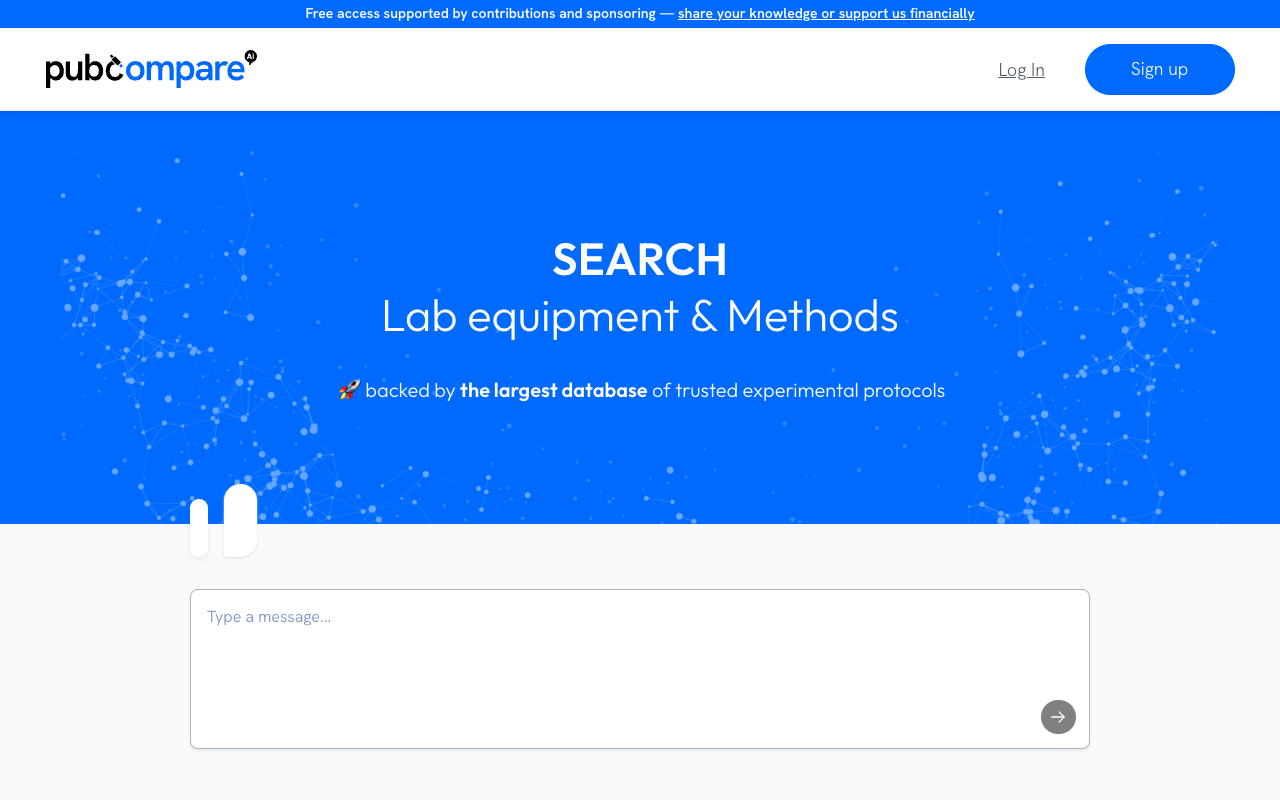PubCompare.ai - The largest database of trusted experimental protocols

PubCompare.ai is a groundbreaking platform that serves as the largest repository of trusted experimental protocols. It offers scientists and researchers access to a vast database of protocols, enabling them to design robust experiments and minimize the risk of failures.
Similar to how PubMed and Web of Science serve as go-to sources for abstracts, PubCompare is the go-to platform for protocol search. With over 26 million open-access protocols from peer-reviewed publications and patents, it provides an unprecedented reach into closed-access content, covering more than 80% of PubMed’s closed-access protocols.
The power of PubCompare lies in its powerful AI tools. Researchers can use AI to detect protocols, compare similar ones, and evaluate their reproducibility through in-protocol citations. AI-driven search features allow users to find similar protocols based on keywords and highlight critical steps that are present in other protocols.
In addition, PubCompare offers unified keywords that intelligently expand or filter search results. Through advanced semantic analysis, the platform groups together various forms of a keyword, including synonyms and singular/plural versions.
One of the key features of PubCompare is its ability to evaluate the reproducibility of protocols based on in-protocol citations. Scientists can easily identify which protocols have been cited by others, providing valuable insights into the reliability and credibility of a particular protocol.
PubCompare also helps researchers overcome the barrier of paywalls by enabling them to detect relevant publications hidden behind them. In-protocol shortcut citations provide access to methods and information that may otherwise be inaccessible.
PubCompare.ai is revolutionizing the way scientists search for and build protocols. By providing a comprehensive database of trusted protocols and leveraging AI-driven tools, it empowers scientists to make informed decisions and drive innovation in their respective fields.
To explore the largest database of trusted experimental protocols, visit PubCompare .